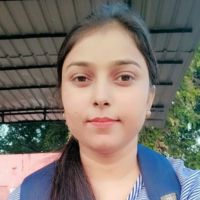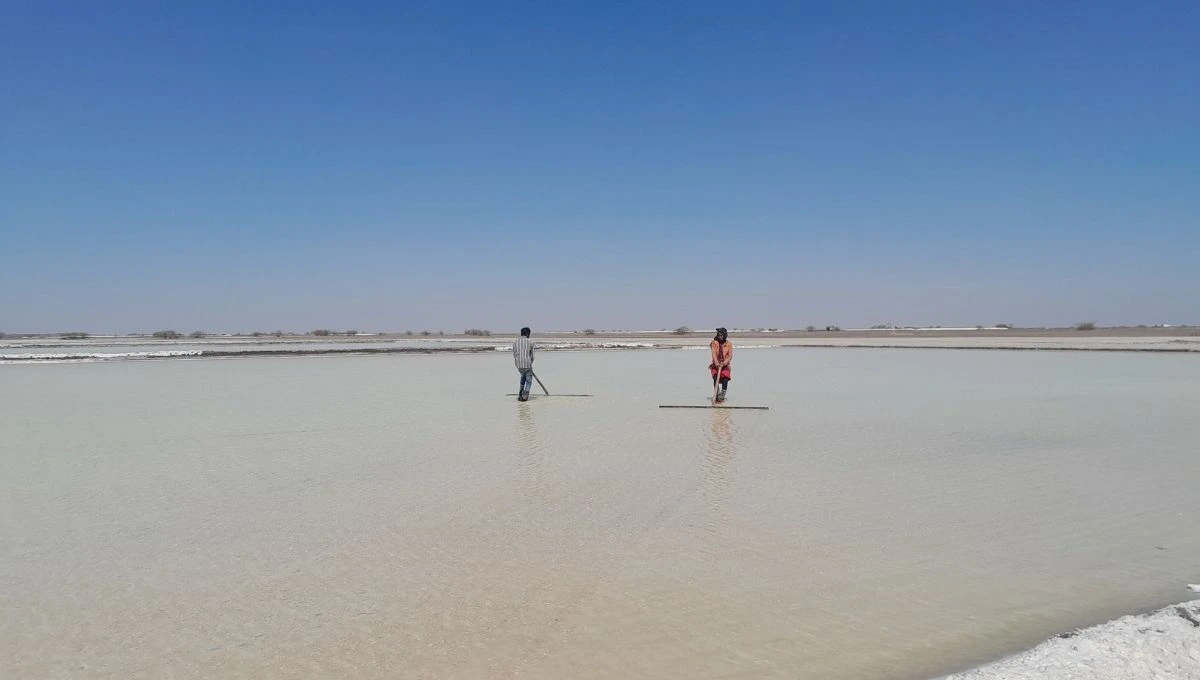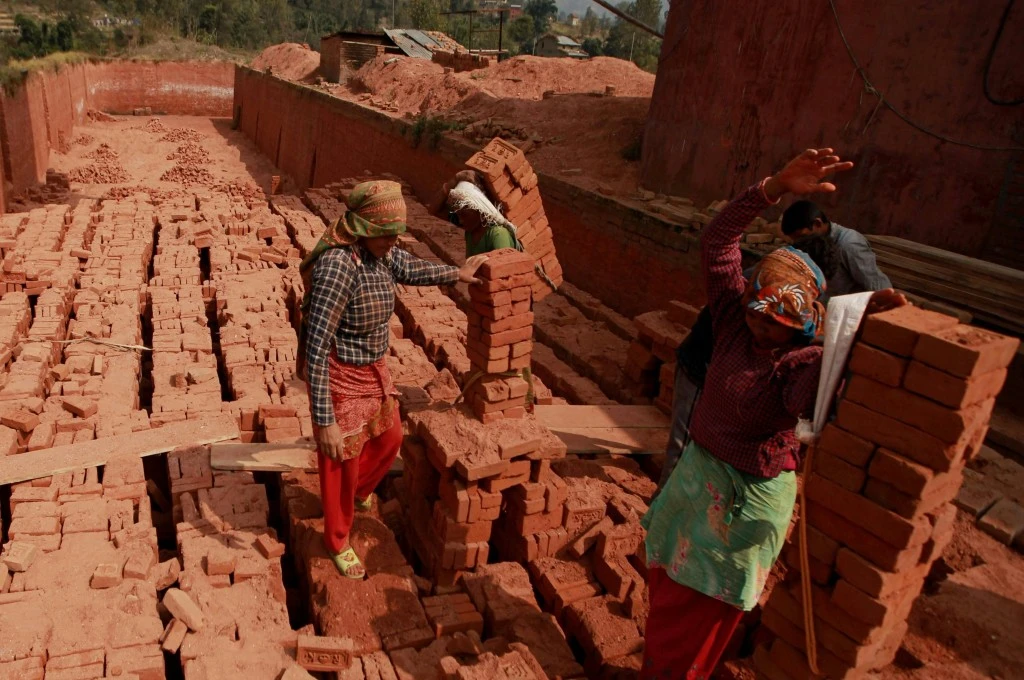My name is Pratibha, and I was born and raised in Jigna, a village in Balrampur in eastern Uttar Pradesh. My father is a farmer like many others in this area, and my mother is an anganwadi worker. I live in Jigna with my parents and younger brother, while my older brother lives in Delhi with his family.
My family has always invested in my education despite difficult financial circumstances. After I completed my schooling, my parents couldn’t afford to pay for college. But my mama (mother’s brother) offered to pay the fees so that I could pursue a BSc degree in biology. By the time I reached the final year, my mother had started working as an anganwadi worker and paid for the tuition from her earnings. After graduating, I could have studied pharma or done an MSc, but we did not have the resources for further studies. I moved to Delhi to live with my older brother and took some courses to learn new skills—tailoring, beauty parlour training, and a computer diploma. I wanted to continue to live in Delhi and start working there, but my mother fell sick, so I returned to the village to take care of her. To help pay for her treatment and manage household expenses, I felt that I should start earning too.
My first job was at Vigyan Foundation. After working with them for some time, I joined People’s Action for National Integration (PANI), another nonprofit with a presence in eastern Uttar Pradesh. They were hiring people to survey the agriculture and water consumption patterns of gram panchayats in Balrampur. I worked at PANI for four years. In addition to conducting various surveys, I helped farmers—especially women—learn about new farming techniques that improved their yields and conserved water. We created multiple mahila kisan sangathans (women farmer collectives) and farmer resource centres (FRCs) to make it easier for women farmers to access the right information and high-quality agricultural inputs.

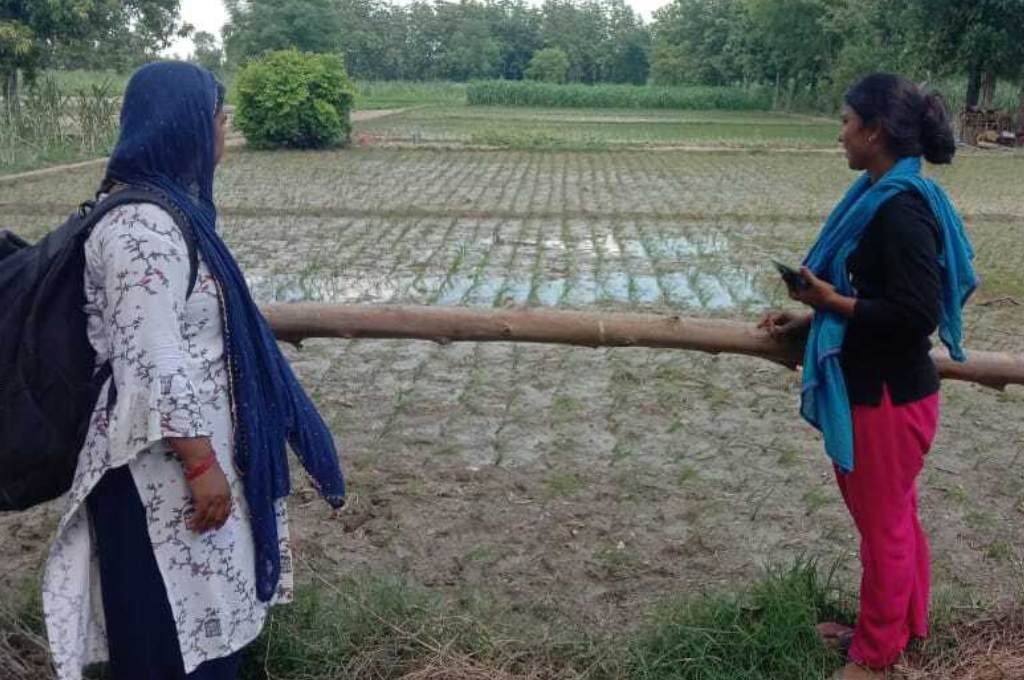
At PANI, we often had visitors—other nonprofits, funders, and corporates. I would always volunteer to take them to see our work in the villages. PANI trained us rigorously, which gave me the confidence to conduct independent visits and speak without hesitation, even with new people.
One such visit was by Hindustan Unilever (HUL) and I volunteered to take them to a mahila kisan sangathan meeting. During their interaction with the women farmers, the HUL team asked them what they had learned from me and how I had supported them. They asked me about the techniques I had introduced to the farmers, and I walked them through each step. One of the visitors was the executive director of customer development at HUL. He was impressed with my work and appreciated me in front of my colleagues. Anoop sir from PANI even joked with them, asking if they wanted me to join HUL. To my surprise, HUL did make me an offer to join as a rural sales promoter (RSP)—a role that involves selling HUL products to shops in villages.
I was very content with my role at PANI, but some time later, my younger brother became gravely ill. He was diagnosed with a neurological problem and had to be taken to Lucknow for treatment. Our combined family income was could not cover his ongoing treatment. I was not due for a promotion at PANI and the RSP role at HUL would pay significantly more, so I decided to accept the offer.
I joined HUL in September 2022. I was told that there were 4,000 RSPs across the country—almost all of whom were men—and that I was one of the first women hired for this position.
5.00 AM: I always wake up at this time, regardless of the weather or the season. The first thing I do is clean the house, or else my mother chides me—she says Lakshmi mata (goddess) doesn’t come to homes that are not clean. I then spend the next few hours doing pooja, preparing breakfast and lunch with my mother, and getting ready for the day.

10:30 AM: I set out on my scooty (two-wheeler) to visit one of my ‘points’. Each RSP is allotted ‘points’ or shops, which we visit on a regular basis. Since my role requires me to travel extensively around Balrampur, I bought a scooty soon after joining HUL. I took out a loan in my name to finance the purchase and pay the monthly instalments with my salary.
The points are usually small neighbourhood setups that sell products such as soaps and washing powders manufactured by HUL, among other things. These shops are owned or run by women who are known as shakti ammas. As an RSP, I’m the bridge between the shop owners and the distributor at HUL. Once a shakti amma is onboarded by HUL, she gets a monthly incentive depending on her chosen target of stocking and selling HUL products. For example, if her target is to sell HUL products worth INR 6,000, her monthly incentive would be INR 200. The incentive increases if they increase their target. I handle their onboarding process and help them manage their monthly targets, which can range from INR 6,000–1 lakh (for the points allotted to me). I take their product orders every week and convey them to the distributor.
When I onboard a shakti amma, I also show her two videos. These provide information about health, nutrition, sanitation, and more. The shakti ammas usually have questions about the messages in the videos and I make a conscious effort to spend the extra time needed to have these discussions. I learned how to interact and engage with people through my role at PANI, which made my transition to HUL easier. Although one is a nonprofit and the other a corporate, there are similarities in my work at both organisations. At first, I did not expect my role at HUL to include field work. I didn’t know that private sector employees also spend so much time in the field—I thought they almost always had an office and a desk job. But as I became familiar with my responsibilities, I understood why this is an important dimension of working at a corporate.
At PANI, I worked closely with women farmers—showing them videos, taking them to on-field demonstrations of new farming techniques, and answering their questions—to make the process of trying something new as easy as possible. I play a similar role with the shakti ammas by helping them navigate new situations such as managing their targets or using an app to place orders. I really enjoy interacting with these women and over time I’ve built good relationships with them, just as I did with female farmers when I worked at PANI.
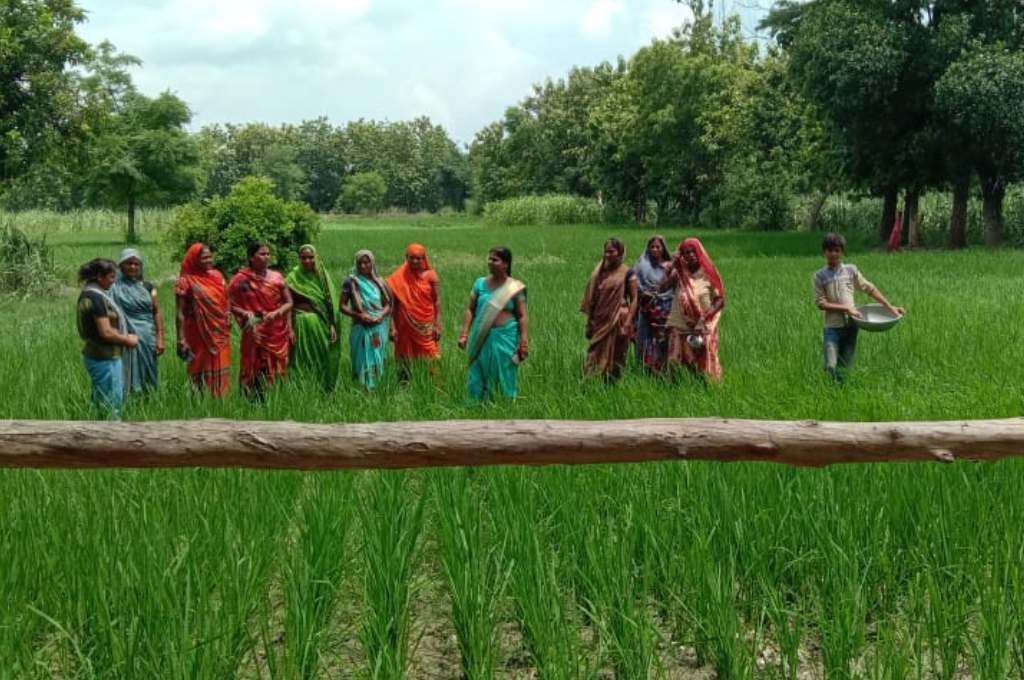
1.00 PM: I’m constantly on the move—visiting points, stopping by the distribution agency—and usually cover 60–70 km in a day. Sometimes it feels like I hop onto my scooty at 10 am and keep driving till evening. I even named my scooty Dhanno for this reason! The name comes from Sholay, one of my favourite movies, in which Basanti’s character names her mare Dhanno. In fact, every morning when I set out for work, I say, “Chal meri Dhanno (Let’s go, Dhanno)” much to my father’s amusement.
In between visiting the points allotted to me, I also spend some time looking for potential points. As the number of points we manage increases, so does our target. When I started as an RSP, I had 11 points and had to sell products worth INR 70,000 every month basis. Now, with 34 points my monthly target ranges from INR 3–4 lakh. We’re supposed to achieve 103 percent of the allotted target and I can proudly say that I’ve only missed achieving my target twice!
When I first joined HUL, I learned about 300 different consumer products so that I could speak to shop owners confidently and answer any questions they may have. The distributor Sandeep sir really helped me in learning all the details. In the first few weeks, I visited the agency regularly with my diary in hand to note down details of the products and memorise everything.
I had to learn many new things and the onus was on me to acquire this knowledge. The team at PANI comprised both men and women, so in the early days at HUL it took a while for me to get used to working with an entirely male team. While I had been the person who encouraged team members to speak up at PANI, I now found myself hesitating to put my point forward or ask questions in a room full of men. But I stayed focused on the job that needed to be done and adjusted quickly. The initial days always present a steep learning curve. I never backed down or felt dejected if my questions weren’t answered. Instead, I tried to grasp as much as possible by observing the other RSPs.
It is undoubtedly challenging to be the only woman in this role, but I tried not to let this faze me. If more women are hired as RSPs in this area, I hope that I can help them manage the challenges they will inevitably face. I wouldn’t want them to give up in the face of obstacles such as travelling long distances, learning on the job with limited support, or dealing with jibes. I recall that when we first started working with farmers at PANI, they—especially the men—would make fun of us by saying, “What will these young women teach us?” But seeing our determination and knowledge, their doubts faded. I carried the same conviction into HUL and put my best foot forward each day so that I can keep growing.
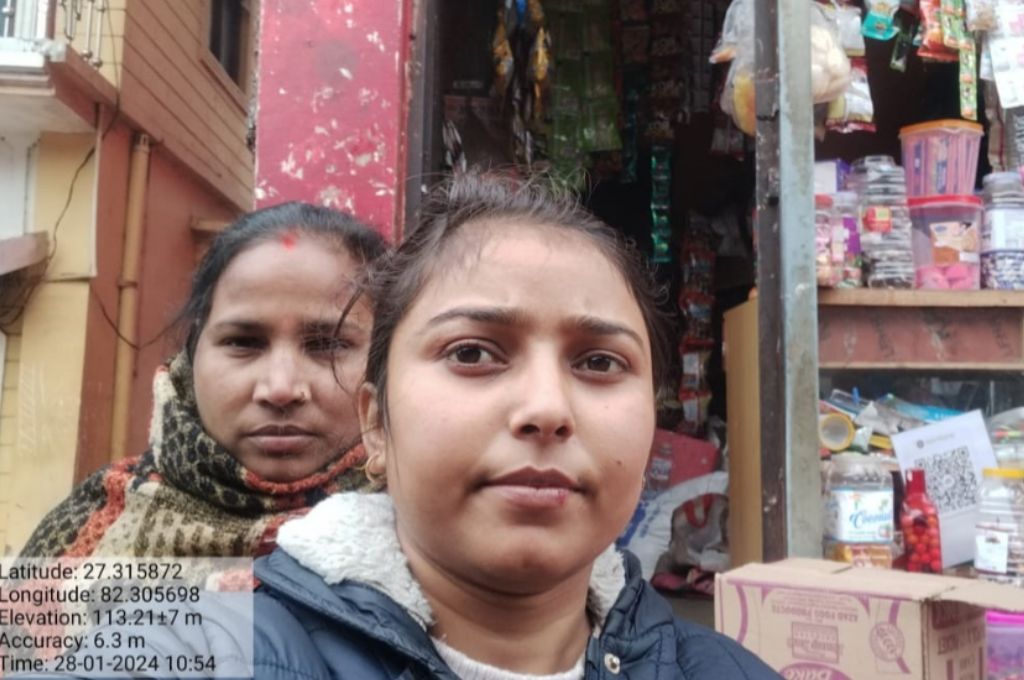
6.00 PM: I reach home and after spending many hours on the road I’m glad to get off my scooty. My mother insists on cleaning the house, so I sweep the floor once again. My family then sits down to drink some chai and we prepare dinner together. My father is also back by this time after tending to the fields. I didn’t know much about the traditional farming techniques that he used to follow. But after I began working at PANI, I introduced him to new and organic techniques that helped improve the output on our farms too. He and I often joke that I can easily identify which farms belong to whom in our village.
10.00 PM: After dinner, I spend a few hours studying, usually till 1 am or so. I’m always looking for opportunities to learn more, so I joined a course to get certified as an auxiliary nurse midwife (ANM). I pay the fees through my salary and my mama also contributes to it.
I have been working for approximately six years now and fieldwork has always been a key part of my job. I have really enjoyed these roles, which is why I’ve always given them all my effort and energy. At the same time, I do dream about having a desk job in an office someday.
As told to IDR.
—
Know more
- Learn about the many challenges women in India face when they join and navigate the workforce.
- Listen to this podcast about the crucial, yet invisible role that women farmers play in agriculture in India.
- Ashwini Deshpande unpacks the recent increase in women’s labour force participation in India.


